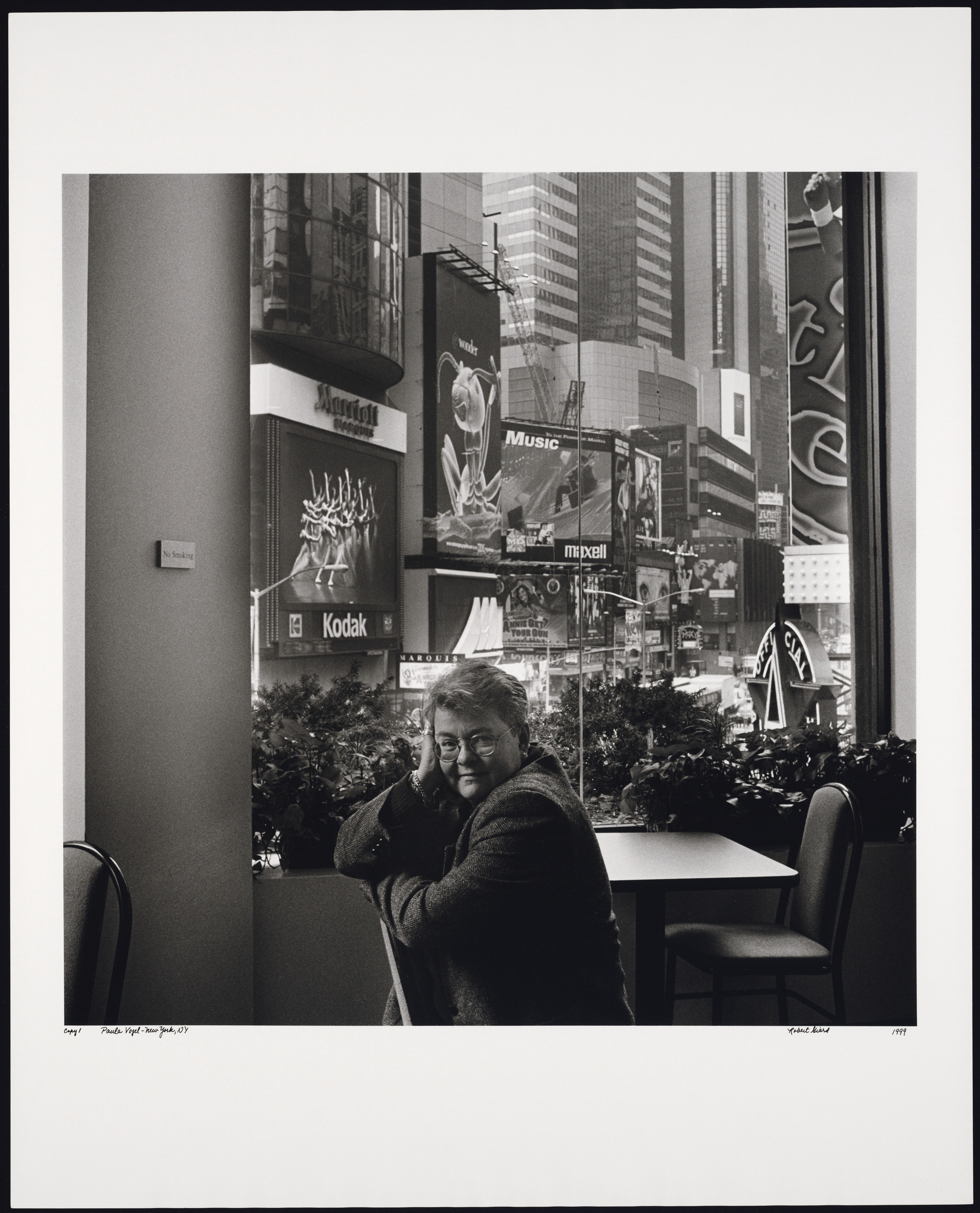Paula Vogel’s Bake-Offs
by Raffi Donatich, Y 2019
Frustrated with the cookie-cutter formula of commercial American theater, Paula Vogel and several other New York City playwrights united in 1984 to invent a unique, generative writing game. They cleverly named it “The Great American Play Bake-Off,” and identified the “recipe” for popular plays being produced at the time and wrote their own five-minute plays that included the key ingredients. In this first momentous Bake-Off, the writers decided the three key ingredients were: a front porch, a kitchen sink, and a withheld secret. After only 48 hours of writing, the group reunited and read their short pieces to each other with an emphasis on celebrating each other’s work, rather than critiquing it. Paula Vogel, Pulitzer Prize and Tony Award winning playwright and celebrated writing teacher, has since expanded this game to function as a writing workshop. She has led Bake-Offs at the Yale School of Drama, the Royal Shakespeare Company, the Bush and National Theatres in London, and in Brazil, Prague, Montreal, and Los Angeles. Vogel’s “Bake-Offs” encourage colleges and theaters around the country to respond to a particular play and incorporate a list of ingredients that Vogel has extracted from the source material.
Another example of a Bake-Off that Vogel has frequently used in her workshops is the Don Juan Bake-Off. First, the students must read The Stone Guest by Tirso de Molina and Don Juan Comes Home from the War by Ödön von Horváth (and extra credit is familiarity with Molière and Mozart). Then, in 48 hours, the students are instructed to write with the following ingredients: a statue, a ghost, a master, a servant, swordplay, and a moment of coitus interruptus. Vogel’s commitment to engaging with source material encourages writers to analyze creative influence and interrogate why certain elements, or ingredients, are inherently dramatic. The source material for Vogel’s Bake-Offs are varied and exciting: The Penthesilea/Wonder Woman Bake-Off requires students to read the pilot of Wonder Woman and read Penthesilea by Heinrich von Kleist.
The Swan Bake-Off source material includes Leda and The Swan by W.B Yeats and The Swan by Elizabeth Egloff; the Prague Bake-Off ingredients are: bridges, tourists, and Kafka-esque nightmares. The resulting plays prove that reactive writing is also original, and that there exists a tradition of incorporating the same ingredients in order to create something entirely new. In the Teaching Materials (Series III) in Vogel’s papers at Beinecke, there are boxes of Student Writings that Vogel kept. The Student Writings include some of the five-page results from the Bake-Offs, and indication that the exercise sometimes led to a larger project. On a handwritten note attached to one of playwright Christine Evans’ manuscripts, she thanks Vogel for agreeing to read her work and writes, “Mothergun was written for Bakeoff.”
This President’s Day, February 19th, 2018, The Beinecke Rare Book and Manuscript Library, home to the Paula Vogel Papers (http://hdl.handle.net/10079/bibid/12289086), will host a space for this year’s National UBU ROI Bake-Off. The chosen play, Alfred Jarry’s French satire Ubu Roi, is notorious for its universally horrible reception and for opening and closing on the same day, December 10, 1896. The power-hungry protagonist, Ubu, parodies Macbeth as he kills the King of Poland and finds himself in a slew of outrageous situations. Although the play was a commercial disaster, the reviews reveal its highly revolutionary effect. British critic Arthur Symons stated, “The play is the first symbolist farce: it has the crudity of the schoolboy or a savage: what is, after all, most remarkable about it is the insolence with which a young writer mocks at civilization itself, sweeping all art, along with all humanity, into the same inglorious slop-pail.” Additionally, in his autobiography, W.B Yeats expressed his enjoyment of the show, but melancholically concluded, “I am very sad, for comedy, objectivity, has displayed its growing power once more.” Jarry’s play remains significant today for serving as an avant-garde pioneer to the Theater of the Absurd and the modernist, surrealist, and Dada movements. This 19th century political satire undoubtedly invites writers to consider how to incorporate the list of ingredients into a five-page play about our own political climate. The list of ingredients, copied from Vogel’s website (paulavogelplaywright.com) is as follows:
- Pa Ubu 45 (supposedly 6’3”, a trim 239 lbs, in “excellent health”. And yes, the hair is his and real.)
- Ma Ubu: strangely catatonic when in Pa Ubu’s company.
- Angry Ambassadors from every country that Pa Ubu has insulted.
- A strange use of the English language. That is, it sounds like it is supposed to be English. i.e. words for Sh#t are prolonged like pshitte (in French Merdre!! see *covefe below)
- *Covefe
- A groveling, conniving, servile counselor who believes in conversion therapy for queers and trans & does not spend time in the company of women except his wife.
- A double-triple-quadruple-octahedral cheesburger with special sauce. Freedom Fries on the side.
- A usurpation.
Extra credit is:
- Enter a bear.
- Posters protesting Pa Ubu 45.
- Posters protesting protesters of Pa Ubu 45.
- “An unmentionable mop” i.e. a pshit-stick.
Yale students will read their resulting plays together on Monday afternoon – with baked goods, of course. And as Vogel comically notes on her website, “(Oh yes. And if a full length play emerges as often happens, Paula Vogel gets ten percent–I say that to each workshop and I am still waiting for the checks to arrive…Or you can give the ten percent to a theatre near you!)” Best of luck!
Sources
https://www.theparisreview.org/blog/2015/09/08/an-inglorious-slop-pail-of-a-play/
